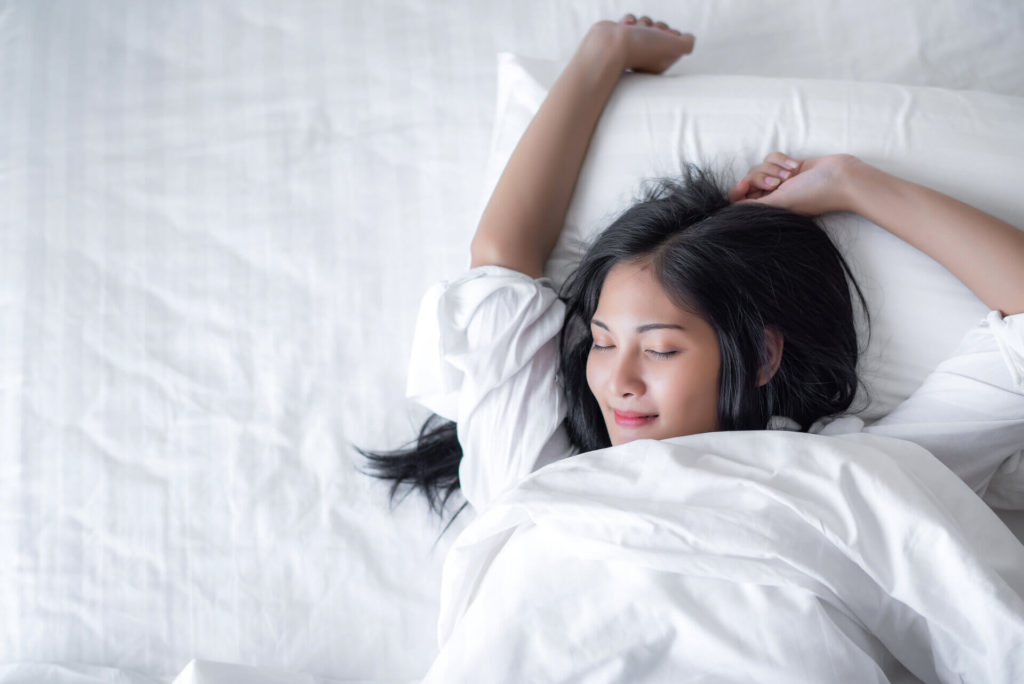
It is well-known sleep affects your mental physical health.
Getting good sleep is the foundation of a healthy routine, boosting your mood and helping prevent health problems.
Sleep is often the ubiquitous thing we need more of, yet readily sacrifice to ‘get it all done’.
When trouble sleeping goes beyond a short interruption, disordered sleep patterns can significantly impact our health.
In stressful circumstances, we can be especially vulnerable to the side effects of sleeplessness.
By understanding sleep disorders, we can prevent accidents, increase our engagement, and improve our mental resilience.
What is a sleep disorder?
Sleep disorders are characterised by difficulty to achieve a good quality of sleep. (Source: Nightingale Hospital)
Sleep disorders affect the quality, timing or duration of a person’s sleep and cause regular sleepiness or problems functioning while awake.
Your physical health and mental health can cause problems with your sleep. Everything from passing worries, medications, alcohol and drug use, working as a shift worker to chronic conditions (source: Mind UK).
Statistics show sleep disorders are regularly affecting a lot of people.
As recently as last year, 36% of UK adults struggle to get to sleep on a weekly basis (source: Formulate Health).
Don’t slumber on your symptoms
Sleep disorders are diagnosed and treated by medical professionals, and often involve further testing.
Most sleep disorders can be characterised by one or more of the following four signs:
- Difficulty falling asleep, lying awake for long periods, waking regularly during the night
- Waking and being unable to get back to sleep
- Experiencing lower mood, having difficulty concentrating or becoming more irritable
- Feeling sleepy or like you have not slept well during the day
- You find it difficult to stay awake during the day
- Something is interfering with your sleep schedule, or are prone to unusual behaviours that disrupt your sleep
(Source: NHS Better Health)
There are a range of remedial treatment options available – from sleep studies, surgery, medication, oral appliances, and herbal remedies.
Sleep plays an important role in our physical health. For example, sleep is involved in healing and repair of your heart and blood vessels.
Ongoing sleep deficiency is related to an increased risk of heart disease, kidney disease, high blood pressure, diabetes, and stroke.

How common are sleep disorders?
Nearly 1 in 5 people in the UK are struggling to get to sleep every night (source: Formulate Health).
Which indicates we’re not getting the sleep when we need it.
While 1 in 2500 people live with very visible sleep disorders like narcolepsy, what affects our sleep can be more subtle (source: Narcolepsy UK).
Common sleep disorders include:
- Obstructive sleep apnoea
- Central sleep apnoea
- Snoring
- Circadian rhythm disorders
- Idiopathic hypersomnia
- Insomnia
- Narcolepsy
- Bruxism (teeth grinding)
- Parasomnias (e.g. sleep talking, sleep walking and other automatic behaviours, nightmares and night terrors, sleep paralysis)
- Restless leg syndrome
- Rapid eye movement behaviour disorder
(Source: UK HealthCare)
Other well-known and common contributors to sleep disorders can include cataplexy (muscle weakness).
Shift work and other lifestyle factors
People whose work schedules fall outside regular daytime hours are considered to be ‘shift workers’.
Sleep issues among shift workers are so common they have their own disorder – Shift Work Sleep Disorder, or circadian disruptions. These disorders affect up to 30% of shift workers nationally.
Shift workers make up roughly 12% of the UK workforce, working in many safety critical and other sectors, including transportation and healthcare. Shift work is linked with an increased risk of sleep problems, occupational and driving accidents, and long-term health conditions (source: UK Parliament).
Some other factors which can disturb your sleep and contribute to sleep disorders are:
- Underlying medical condition or disease
- Hormonal changes
- Chronic pain
- Side effect of medication or treatment
- Consistently unhealthy diet/low nutrition diet
Any sleep disorder, if left untreated, can cause serious health concerns. They present risks to a person’s professional performance, increased probability of committing an error or workplace accident and their mental health.
If you are consistently experiencing trouble sleeping, please contact your healthcare professional.

Workplaces can support better sleep habits
If you’re a leader or supervisor, proactivity is key.
Leaders can role-model positive sleep behaviours, share education resources and make good sleep choices.
And there’s science to back up the effects this can have in the workplace.
A study conducted by Dawson & Reid found that 17 hours without sleep is equivalent to driving with blood alcohol level of 0.05%. After 24 hours without sleep, it increases to an equivalent of 0.1%.
Signs of sleep deprivation are evident in reduced concentration, daytime sleepiness, slower reaction times and mood changes.
Unfortunately, falling and staying asleep doesn’t always come easily.
Catching up on your sleep won’t happen with a single early night. If you’ve had months of limited sleep, you’ll have built up a significant sleep debt, so recovery would expect to take several weeks.
Ways to support employees/interventions for employees
- Reviewing and optimising work schedules – Facilitate rest breaks and screening for sleep disorders.
- Role adjustments – For those undergoing diagnosis or treatment for a sleep disorder, you can make temporary or ongoing adjustments to someone’s duties to ensure safety and efficiency at work.
- Don’t glorify sleeplessness or fatigue – Be disciplined in how and when you talk about late nights, and if necessary use scheduling tools to avoid sending emails and messages late at night.
- Flexible working hours – During treatment, starting a new routine or medication flexible start and finish times can support personal wellbeing. You can work together towards goals such as an amount of hours worked or a particular start time.
- Time off for medical appointments – Where possible, accommodating time off for medical appointments such as sleep studies or mental health appointments.
Try these natural sleep remedies:
- Make sure you have a cool, quiet, dark environment to sleep in. Avoid bright lights, screens and caffeine before bedtime, and if you exercise in the evening, finish two or three hours before you go to bed.
- Try to identify stressors and recognise how they’re affecting the quality and duration of sleep. Stress, anxiety and depression are among the biggest causes of tossing and turning.
- The more you worry about the sleep you’re not getting, the harder it is to fall asleep. Do what you can to maximise the chances of a restful night. Then do your best not to worry.
- If you just can’t sleep, get out of bed and go to a different room, but do something boring. Whatever you do, put down the phone. Don’t watch TV and don’t look at anything that emits light.
- Treat insomnia by seeking out a therapist trained in cognitive behavioural therapy for insomnia.